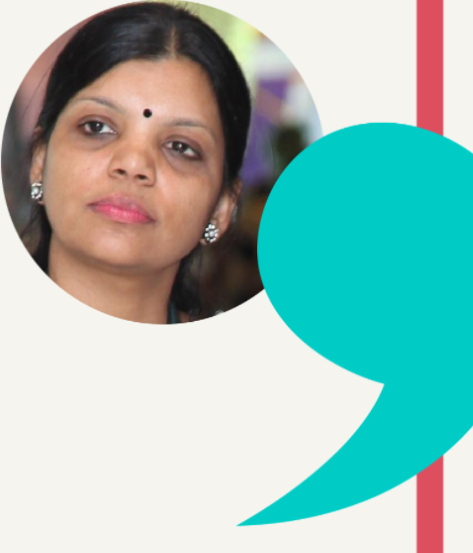As writers it is not enough to write well. It is just as important to sharpen your business and communication skills in preparation to conduct confident, intelligent, and unemotional conversations with potential clients. Especially when they counter you and disagree.
As a Communications Specialist in a corporate role, I was supremely confident of my writing/editing skills but failed miserably when dealing with people. I was either scared stiff or defensive during critical feedback of my work. This is when I learned from my mentor boss how important it is to build my emotional intelligence, my personal brand, and make every interaction count.
The transformation from a creative artist to a professional writing service provider did not happen overnight, but instead only after innumerable takes and tribulations. I developed the subtle art of being a professional while still being the creative writer in my heart.
Pay attention to them.

Get to know them through their digital footprint and bring up any relevant point in conversation. This will make them notice you as someone who has taken the time to prepare.
After a few rounds of interviews for a large project, I was meeting with the global head of an organization who had just 15 minutes for me. I had to make an impact. While I was able to hold a decent conversation, when I was signing off, I congratulated him for an Innovator award he had received a day ago. I had looked it up before the meeting. He was delighted, and we spoke for 45 minutes more.
Be Non-Judgmental.
Jot down notes during the discussion, keeping an open mind. Once you become judgmental, you risk missing key points of the meeting. I recall a client stopping midway during a meeting to ask what I was writing down. I froze for a minute thinking I had offended her, but went on to read the notes. She was thrilled to hear the exact words she had uttered, and she viewed me favorably from then on.
Be Professional.
Politely asking questions and disagreeing agreeably make a huge impact. In disagreement, state your situation and say why you must defer or dismiss, bringing out the reasons. Leave out emotion. This will tell them that they are dealing with smart writing talent. With trepidation I remember disagreeing with the Asia Head of a large multinational corporation on turnaround time for a project. But I quickly demonstrated the process of editing a paragraph live and showed him what it entails. He relaxed the timelines.
Be Vulnerable.
As you are wrapping up the interview be candid in saying what a difference this project would make for you, not just commercially but also from a learning and experience perspective. Make them feel good about playing a pivotal part in your writing career. I honestly admitted during a client conversation how tired I was of the usual editing gigs, and what a mind-blowing experience it would be to write an ad copy for saving wildlife. The client empathized, and we ended up having a long-standing relationship.
Be Valuable.
If the conversation has unearthed some content challenges for the client, offer to help without bringing up money. Recently, I edited a LinkedIn profile for a client without charging, and it opened many doors for me.

Be Flexible.
Make them feel comfortable working with you. Shed your ego and be thankful for their time and opportunity. Since people decide emotionally on many decisions, entertain them in this regard, but as a whole maintain that professional aura. They are hiring a writer who can perform and with whom they get along with, not a friend. Juggle that balance, and you’ll land more freelance gigs.
BIO: Bhuvana Rajaram is a blend of corporate professional and creative writer penning content for B2B audiences while being a lifestyle blogger. She has her own Content and Communications boutique outfit: Beautiful Times. http://beautifultimes.in/
Leave a Reply